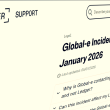It’s an open secret that app vendors regularly collect user data, including sensitive information. However, when this happens with educational apps, this becomes an issue of grave concern. That’s because the users of educational apps are primarily children and minors.
Which Apps were Analyzed?
In its newly published study, Atlas VPN examined privacy-based educational apps to evaluate how much user data they collected. Researchers found that 92% of Android educational apps collected user data.
Researchers assessed the profiles of fifty common Android apps on Google Play that fell into the education category. They analyzed all educational apps, including virtual classroom apps, language, and musical instrument learning apps, study help, online course apps, book reading apps, and educational games.
How were Apps Ranked?
The researchers based their ranking on the number of user information segments each of the apps collected and picked the apps that were ranked higher in the Android app charts for 2022. Such as Similar Web and Sensor Tower.
For your information, a segment could be any data point like payment method, phone number, name, or location, which is categorized under broader data types such as financial, geo-location, or personal information.
Topmost Privacy-Invasive Apps
Language learning application HelloTalk and Google’s e-learning platform Google Classroom topped the chart for being highly privacy-invasive apps. These apps collected user data across 24 segments and eleven data types.
Learning language app Duolingo and a communication app ClassDojo ranked second on the list for collecting user data from 18 segments.
Third on the list was the online subscription platform MasterClass, which collected data from 17 segments. The interactive learning forum Seesaw was the fourth most invasive app, with data collected from 15 segments.
Learning management app Canvas Student was at number five, Remind education communication app was sixth, children’s digital app ABCmouse was seven, and Brainly app was eight. All these apps collected user information from 14 segments.
What Info is Collected?
Most apps collected personal information (almost 90% of the collected data), including name, address, email, phone, user ID, etc. The individual device, app, or browser identifiers information was next in the line (88%), and app info and performance such as diagnostics and crash logs were also collected (86%).
These apps also collected in-app search history as well as information on other apps installed on the device (78%), images and videos (42%), user payment data, and other financial information (40%).
Around 36% of the apps collected location data. 30% collected audio, and 30% collected message information. About 16% collected files data, 6% obtained calendar and contacts info, 2% collected health and fitness data, and 2% extracted web browsing activities information.
According to AtlasVPN’s report, 70% of these apps shared user data with third parties, and just two out of all apps examined didn’t collect any user data.
How to Protect the Privacy of Android Users?
As we use our phones for more and more activities, it can be easy to forget that apps are collecting data about us. Android apps are particularly good at collecting data, which can be used for everything from targeted advertising to selling your information to the highest bidder. But there are some things you can do to stop android apps from collecting data.
First, you can adjust your privacy settings on your phone. By going into the settings menu and selecting “privacy,” you can disable certain permissions that allow apps to access your location, contacts, and other personal information.
You can also choose to only download apps from trusted sources, like the Google Play Store. While there are some great independent app stores out there, they don’t have the same level of security and vetting as Google does. So if you’re worried about privacy, stick to the Play Store.
RELATED NEWS
- Revealed: The 200 Most used and Worst Passwords of 2021
- Google, Microsoft and Oracle generated most vulnerabilities in 2021
- Microsoft Office Most Exploited Software in Malware Attacks – Report
- VirusTotal Reveals Apps Most Exploited by Hackers to Spread Malware
- US and China Exposed Most Databases Among 308k Discovered in 2021









